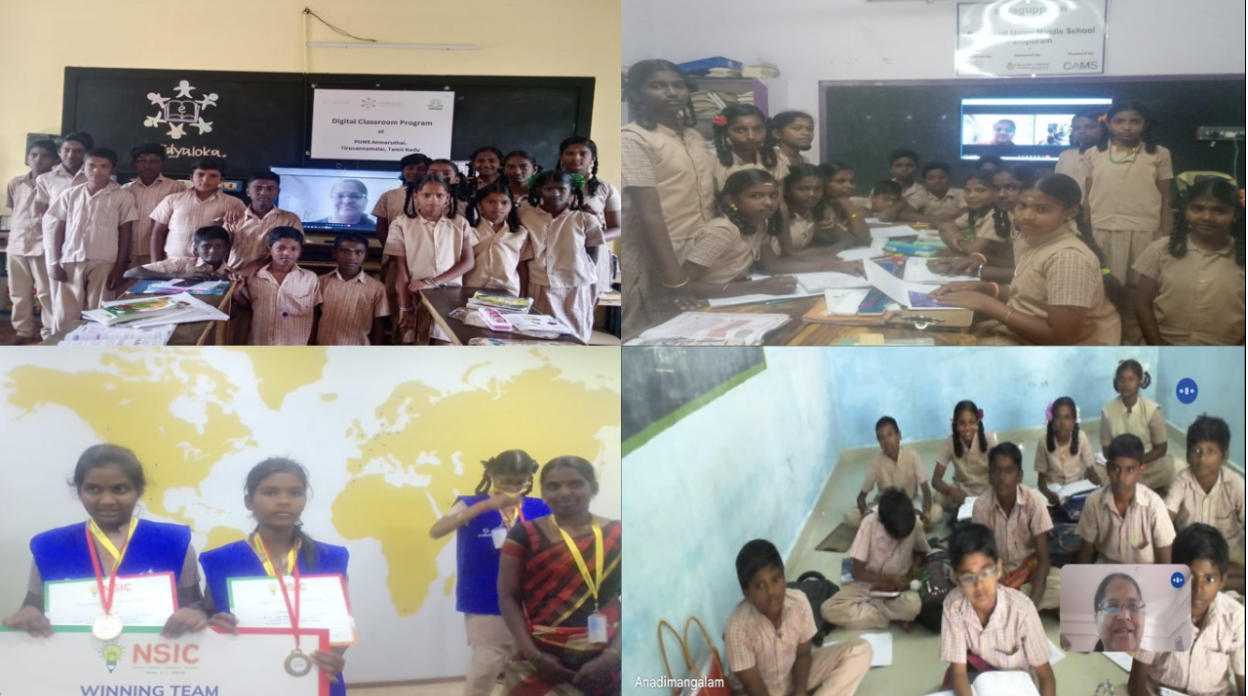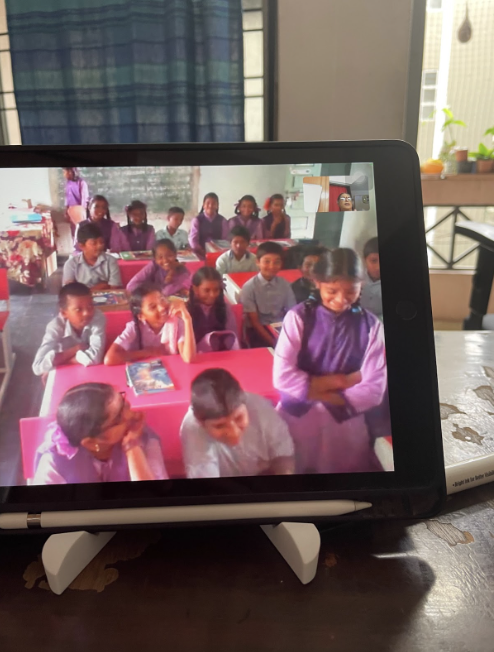The Children Who Teach Us: Grit, Growth and Quiet Determination
eVidyaloka|June 2025
In many rural classrooms across India, young students are rewriting the narrative of what’s possible—not with grand gestures, but through quiet, everyday determination. These are children who may not have access to the best infrastructure or resources, but who bring to class a hunger to learn, an openness to grow, and a strength that leaves a lasting impression on those who teach them. Looking back, these sparks of infectious inspiration stand for the spirit the drives transformation in our classrooms.
One such student, from a school in Uttar Pradesh, had stopped attending classes midway through the term. When his absence became noticeable, a check-in from the volunteer revealed he was helping his father build their house—a harsh reminder of how education often competes with daily survival in many rural communities. A simple conversation with his parent during a parent teacher meeting brought him back to class. His return was a testament to how much children value learning, even when circumstances force them away.
In the same classroom, another student, bright and always eager to participate, often kept up with lessons even without regular attendance. Family matters kept him from school, but his inner motivation ensured he never fell behind. This maturity to balance his family circumstance with the importance of education serves as a quiet reminder that discipline isn’t always about physical presence—it’s about intention, curiosity, and the will to keep going.
And then, there was a boy who was otherwise active, rarely engaged when reading was required. The reason? He couldn’t clearly see the slides. A small adjustment by the volunteer teacher—enlarging the font and helping him sit closer—made all the difference. A nudge to visit to the eye doctor and a pair of new glasses later, he was not only following along but engaging fully. What might have looked like disinterest was actually a child trying, without the right tools.
In Keelarasoor village in Tamil Nadu, the journey of one young girl stands out as a deeply moving example of how opportunity can spark transformation. She was first spotted in a math class, a sharp and curious learner from a community where girls often leave school after Grade 8. Encouraged to participate in NSIC, a national-level competition, she not only made it to the finals but traveled to Bangalore with her mother—a first for them both. That journey opened doors, not just physically but mentally. Today, she studies in a better-resourced school in a tier-2 city. Her new dream? To become a District Collector. Her ambition was always there—it just needed the right spark.

Another classroom in rural India saw a quiet revolution through a young student who took lessons beyond the school gates. What she learned in language and mathematics, she taught to her farmer parents at home. That act, of passing knowledge upward and outward, spoke volumes about how education, when truly understood, doesn’t stay confined to textbooks or examinations. It spreads, transforming not just a child’s future, but that of an entire family.

What these children share is not just academic ability, it’s resilience. It’s an eagerness to learn despite constraints, a readiness to tread-on even when conditions are far from ideal, and above all, a spirit that moves those around them.
For the volunteers who encounter them, these students are more than learners. They are reminders of why education matters. In every story of a child returning to class, of a girl daring to dream beyond her village, of knowledge quietly flowing from a student to her family, there is evidence of change in motion.
These children may be from rural India, but their dreams belong to a world without borders.

Explore how quality education empowers children to break barriers and reach their full potential.
Discuss innovative teaching methods and approaches used by education NGOs to foster a love for learning.
Shed light on the dedicated educators, staff, and volunteers who drive the NGO's educational initiatives.
